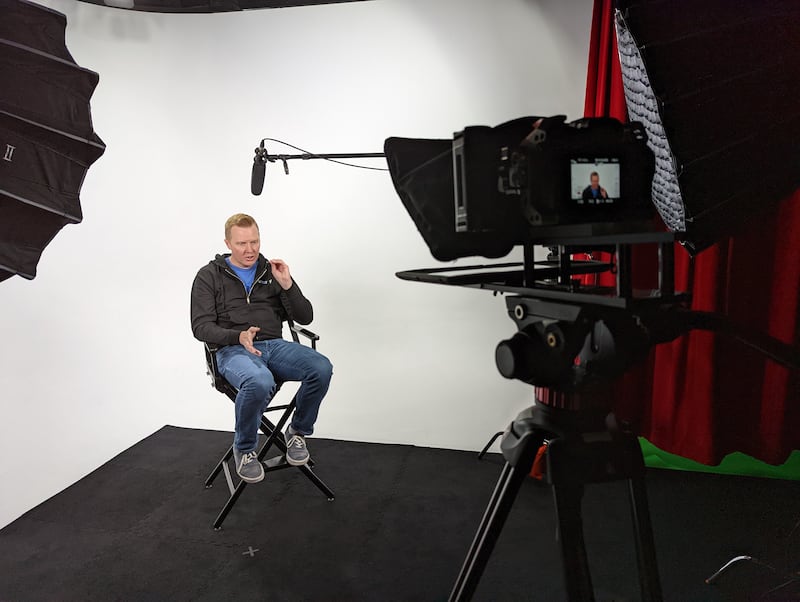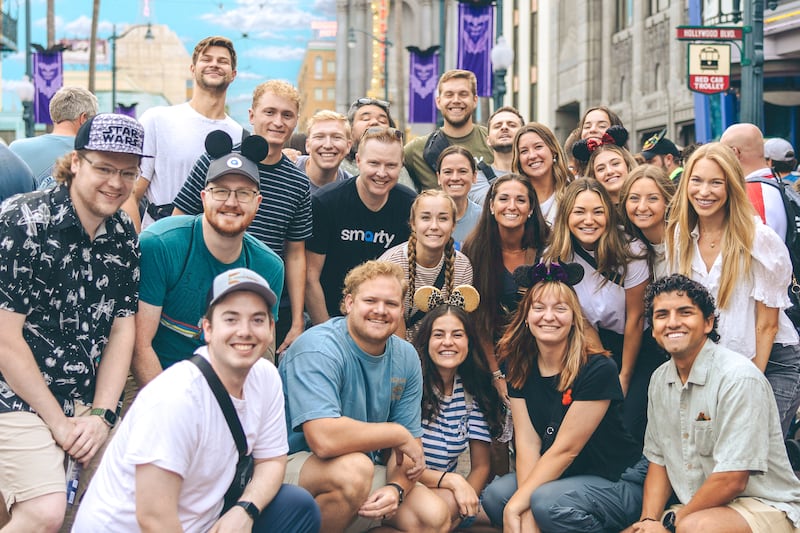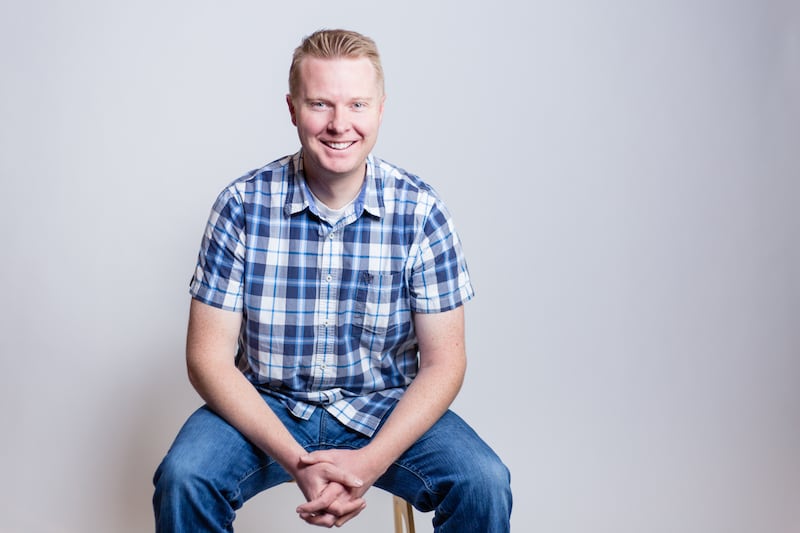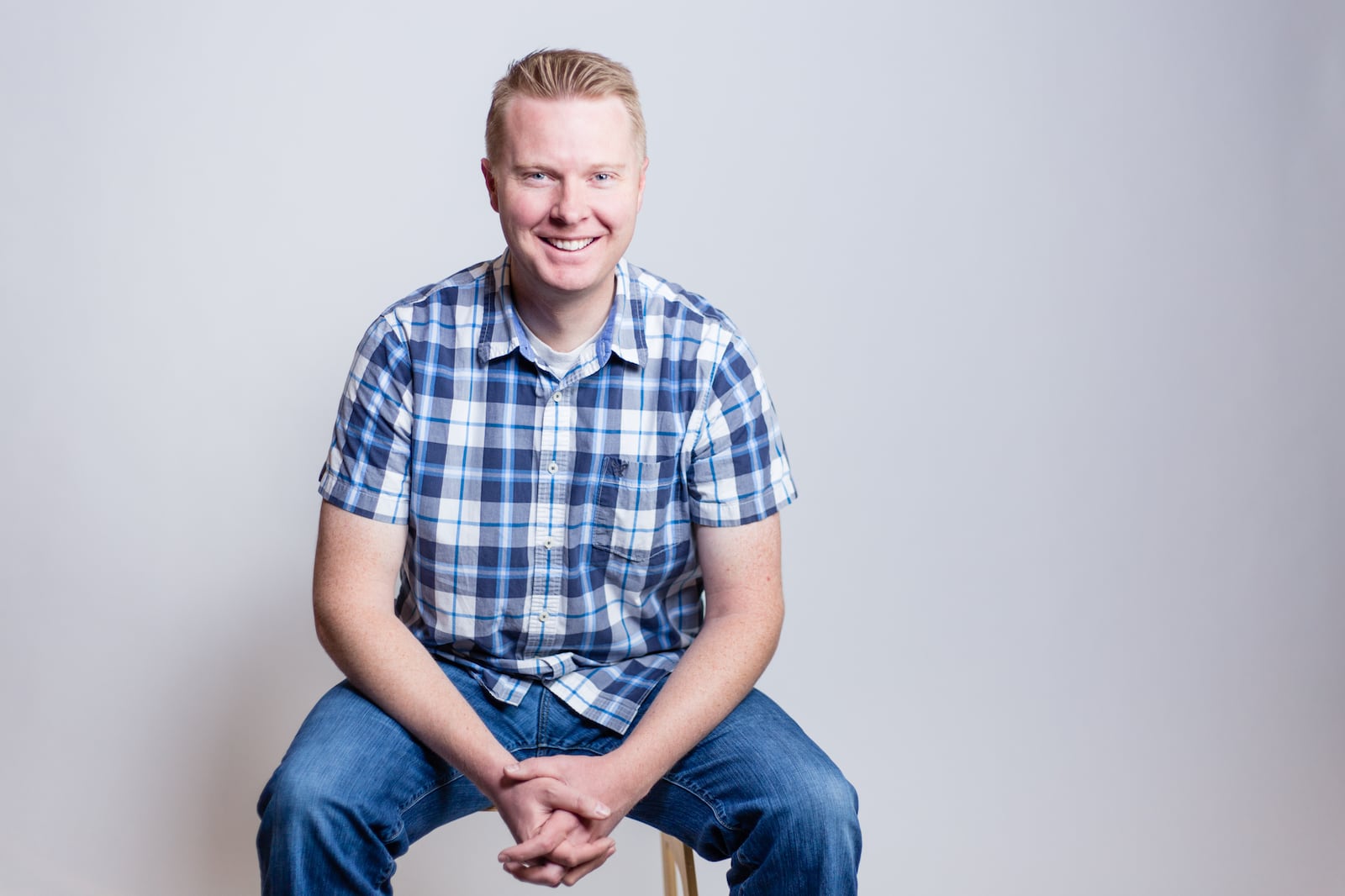I’ve always marched to the beat of my own nerdy drum. My parents were born during the Great Depression, so their values involved keeping absolutely everything and becoming self-reliant, values I would adopt that would further make me different from kids my age.
My oldest sister was almost 17 when I was born. By the time I was old enough to have any concrete memories, several of my siblings had already moved away to college.
Being the youngest, no one would listen to me. But at the age of 7, my father purchased an IBM PCjr for his California-based business. I used this personal computer to play games using IBM PC-DOS (later called MS-DOS) on our home computer.
My games of choice were “The Oregon Trail,” “King’s Quest” and “SimCity.” This was the beginning of my coding journey and experience. At roughly age 9, I was using a hex editor while bouncing between different saved files and analyzing what changed between each version. Through this, I learned to tweak the state of each saved game to get my SimCash balance to several trillion dollars. After uncovering this trick, the game quickly became boring, but my hunger for code grew. By age 10, I had asked for and received a Borland Turbo C++ 3.0 compiler for Christmas. It came in a box containing several 5-1/4” floppy disks and a 3-inch thick C reference manual.
As a freshman in high school, I began writing and posting “shareware,” software that people could buy. I was making decent money from a media player I wrote, RealTime Media Player. It was similar to the media player Winamp, which was released a few years later, although mine was much, much simpler.
I did go to college briefly — for two semesters and 10 days, to be exact. It wasn’t that the information presented wasn’t helpful or relevant. I just felt I had over a 15-year head start on everyone else in the class. I had been putting into practice the concepts taught in those classes since I was 7, and sitting in a room with people who had never coded before wouldn’t increase my skill set. I started to see college as a product or service that I was paying for, both in time and money, and the return on investment seemed quite low. I dropped out of my dual major in computer science and electrical engineering and started working as a consultant.

A turning point
Fast-forward to the late 2000s. I discovered a book from The Arbinger Institute called “Leadership and Self-Deception.” Reading this book changed everything for me. I read it cover to cover in one sitting.
For the uninitiated, this book is written as a first-person narrative with various principles baked in. The main character begins as a jerk. He’s intense, rude and only concerned with growing the bottom line, no matter who gets hurt or how. During the course of his journey, the message becomes clear: To be a good person and live a life that’s worthwhile, you need to begin seeing people as people who have unique needs, challenges and objectives of their own. People are not objects hedging up the way for us, nor vehicles to our own objectives — nor, worst of all, insignificant and ignorable. By the end of the book, the main character salvages many relationships and leads a much more loving and fulfilling life once he becomes more “outward” toward and alive to those around him.
I brought the book to the company where I worked at the time. Its message rang so true that I thought it could be the lifeline they needed. I wasn’t wrong, but my message sadly fell on deaf ears. The company was too entrenched in its way of doing things to see how its leaders’ behaviors affected employees negatively, resulting in abysmally high turnover rates.
Separating myself from that company, I secured a release and was able to take one of the worst-performing product lines and start SmartyStreets, which later became Smarty, in 2011.
My mother called me “J.O.” growing up, and that nickname stuck, primarily because I work with so many other Jonathans and Johns at Smarty. But my name wasn’t the only thing that carried over from home. The childhood values my parents instilled in me from a very young age have shaped the cultural and technical decisions we make as a team here at Smarty, including our three core values: fun, outwardness and wizardry.
Fun
My parents pushed me to have fun while learning. They provided me with the time and tools to explore my passion for coding. This formed an important part of our core culture: fun.
At Smarty, the goal I saw for the company was to have fun not only together but also in, during and throughout our work. I didn’t want my company to experience high turnover and burnout the way my previous experiences had felt. Just as I found fun in learning to code, I firmly believe that people should enjoy coming to work every day and like what they do.
I frequently apply this value and encourage my organization to do the same. Whether we’re traveling, playing games, pulling pranks, singing karaoke, performing improv games during staff meetings or creating useful products together, having a good time is essential.
Though we don’t take ourselves too seriously, we’re serious about providing value to those around us. Our desire and ability to create and deliver valuable products keeps things fun, and that spirit of fun drives our innovation in the workplace. There should be intrinsic satisfaction in a career. Ultimately, that satisfaction leads to developing relationships and taking a stake in each other’s successes and failures.

Outwardness
Because of the Depression-era values taught to me by my parents, I think my mind was more receptive to the principles taught in the book “Leadership and Self-Deception.” Right from the start, I sought to create a company culture that embraced an outward mindset.
In the early stages of the new hire interview process, I expect applicants to read the book and discuss the principles in their final interview. We continuously train on principles from that book as teams and as a company. This formed another one of our core principles: outwardness.
I can confidently say that we try our best to see the humanity of others and consider their needs, objectives and challenges as we go about our work. This is relevant for company relationships and with customers or other external channels. We hold ourselves accountable for our impact on others and our results.
Interestingly, outwardness doesn’t mean being taken advantage of or merely being nice. Instead, it often means having high expectations of people while also recognizing that some individuals may choose not to perform according to the organization’s collective needs. In such cases, outwardness means having difficult but necessary conversations and inviting these individuals to be successful elsewhere.
Wizardry
Wizardry is just a fancy way of saying mastery, but it’s done in a fun way (see core value No. 1). Part of being able to be true wizards of our craft involves self-reliance. At Smarty, we actively develop our skills. We welcome the uncomfortable work it takes to master ourselves and our craft. We continuously learn, improve and help others do the same. We strive to tailor career paths for each employee’s development goals.
As an example, I needed Smarty to be cloud provider agnostic. We couldn’t allow ourselves to depend on a single provider such as AWS, Azure, Google Cloud, etc., because when these providers experience a failure condition, Smarty’s APIs would be unavailable or inaccessible as well. Because uptime and availability are critical to our customers and to us, Smarty had to be the absolute best in that category. This formed our core value of wizardry.
Being a self-reliant company meant we didn’t owe anything to anybody. As a result, Smarty is currently bootstrapped, debt-free, and hasn’t taken outside capital. Without these outside influences and forces, Smarty controls its own destiny. During the U.S. Federal Reserve’s interest rate raises between March 2022 and July 2023, many organizations had layoffs because cheap money was no longer available. By being self-reliant, we were unaffected by such challenges and were prepared to weather the storm.
Part of being wizards in our craft also involves making complicated things simple for the average person. When I started Smarty, I knew I wanted to make something as complex and complicated as addressing data easy. I wanted to be the easiest, highest-quality vendor to work with. Product support, transparent pricing and seamless integrations within major products and platforms became and still is the ultimate goal. I wanted to absorb the complexity and provide a service that could do the work necessary for others to succeed in their organizations.
Beyond buzzwords
I recognize that saying my company has values based on my vision could sound obvious and boring. Every company has values. Even so, the actual test of whether or not those values are valued is whether or not those in the organization embody them.
Complicated core values simply don’t work. Mission statements, purpose statements, core values, visions — whatever you want to call them — should be short, memorable and important. Organizations should demonstrate that their core values are relevant by promoting and compensating those who truly embody those values. At Smarty, those people are mastering their craft, building relationships and having fun in the process.
For years, we have used the tagline, “Everyone needs validation.” It ties nicely into our core address validation services, but it’s also the very essence of why Smarty exists. At the end of the day, each person we interact with has hopes and dreams, challenges and trials. We want to recognize them as “whole people” and help them feel understood and important.
Staff meeting, the Smarty way
Improving communication across departments is never a bad thing. Many companies use meetings to communicate when a simple broadcast message could suffice. However, staff meetings are a different matter altogether.
As in many other areas of my life, I believe meetings should be fun. If the dry and boring work stuff is the only reason you meet, your employees can start to feel underappreciated and micromanaged. It helps to break up staff meetings with fun and outwardness while discussing important housekeeping items. For example, our staff meetings are full of learning about employees’ families, hobbies, eccentricities, talents, fears and so much more. They’re hosted by our in-house comedian and resident fun-i-fier. As an aside, we have found that delivering security training is much more interesting and engaging when it’s made entertaining.
Remember how we’re trying to see people as people? You have to make an effort to help your teams do that. Put your money where your mouth is and make time for more than just cranking out the work. I promise that your productivity will go up (ours has), communication will improve (ours did), and issues will be resolved more efficiently if you make time for your employees to get to know each other. No organization is without issues or challenges, but the solution to those issues will finally be within reach.
Looking to the future
If it starts or ends with an address, we want to be part of it globally. That includes address validation, enrichment, geocoding and much more currently in the works.
I’m saying “we” a lot, but it’s true. I have complete company buy-in for this process because, in the beginning, they trusted me that implementing those core values would make us successful both as a company and in our personal lives. Over time, we’ve all seen that it has worked.
The best part? I get to do it all surrounded by employees who have become my friends in a place I’ve loved calling home. Thanks, Utah, for being there for us and giving us some spectacular views while we have fun, become wizards and be outward while doing it.


